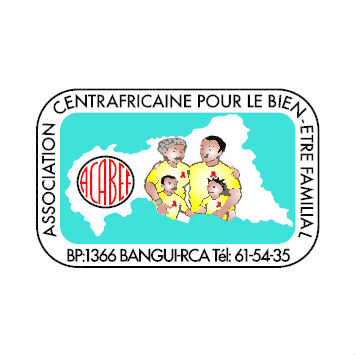

| 31 March 2016
Association Centrafricaine pour le Bien-Etre Familial
The Association Centrafricaine pour le Bien-Être Familial (ACABEF), was established in 1986 and recognised as an NGO by the Central African Government 1987. It signed a collaboration agreement with the government in 2003. Aim: To participate with the Government in creating the necessary conditions for the economic, social and cultural development of the population; To support the Government and through it the Maternal and Child Health Services; To contribute to the integration of family planning programmes into the public health system; To provide, when necessary, useful advice to relieve couples suffering from infertility and help them prevent future cases. Objectives: To increase young people's access to comprehensive, gender-sensitive sexual and reproductive health information and education; To increase young people's access to a wider range of age-appropriate services; Contribute significantly to the prevention and control of STIs/HIV/AIDS; Contribute to increasing access to psycho-social care for people infected and affected by HIV/AIDS through a dynamic partnership; To improve the access of women, men and young people to quality Sexual and Reproductive Health (SRH) services using a gender and rights based approach; To contribute to the information and reduction of unsafe abortion rates in the country; To provide care for victims of GBV. ACABEF targets: Adolescents and youth; Men and women of reproductive age Number of clinics: ACABEF has had 07 clinics since its creation, namely The model clinic in Bangui in the capital The Ouham regional branch located in Bossangoa; The Lobaye regional branch in Mbaiki; The Ouaka Regional Antenna located in Bambari. A Point of Care (PPS) in Paoua A Care Provision Point (PPS) in Bozoum A youth-friendly centre in Bangui. However, with the socio-political events that the country has experienced since 2013, some clinics in the interior of the country have been completely vandalised and destroyed by armed groups and their goods taken away. For the time being, the association only has two clinics located in Bangui and Mbaiki and a youth centre in Bangui. The Association has been offering an average of 400,000 services per year to the population for the past 3 years including: SRH and FP services in fixed and advanced clinics HIV screening and follow-up of people declared positive for psychological care Comprehensive sexual education Carrying out community-based distributions Management of VGB Infertility treatment Advocacy on SRH rights issues

| 31 March 2016
Family Planning Association of India
Established in 1949, Family Planning Association of India is a voluntary non-governmental organization, which pioneered the family planning movement in India. FPA India works on a wide range of SRHR issues encompassing family planning, maternal health, child survival, HIV/AIDS, safe abortion, reproductive tract cancer screening and prevention, gender empowerment and young people, and mitigation of gender-based violence (GBV). Key strategies include ensuring access to high quality SRH services and strengthening health systems; strengthening access to information and services for young people; comprehensive sexuality education; capacity building of health care providers and community volunteers on SRHR issues; engaging with communities and individuals to change gender disparity and promote SRHR; promoting livelihood opportunities for economic empowerment of the poor and vulnerable and advocacy for policy change at the national and state level. FPA India reaches a population of more than 30 million annually, on an average. Presently, FPA India operates through 45 Branches and Projects across 18 States, supported by more than 3000 community based volunteers and more than 1000 staff. Services are provided through 39 Reproductive Health and Family Planning Centres (RHFPCs), 19 Urban Family Welfare Centres (UFWC) that are government funded, 19 satellite clinics, 229 associated clinics, 56 outreach service units with support from 510 CBDs, 119 private physicians and 33 other agencies. During the year 2020, SRH services were provided to 4.2 million clients, of which nearly 40% were young people below the age of 24 years. Vision: All people empowered to enjoy their sexual and reproductive health choices and rights in an India free from stigma and discrimination Mission: A voluntary commitment to SRHR to ADVOCATE for and ENABLE gender equality and empowerment for all including poor and vulnerable people, ENSURE information, education and services, POWERED by knowledge, innovation and technology towards sustainable development.







